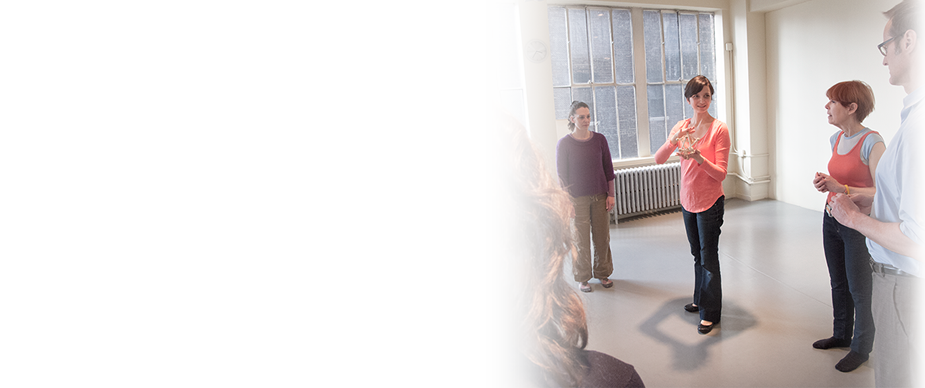Is that me skateboarding? Posture, Fitness, and Balance
/When I was a kid, I just assumed that skateboarding was something that I couldn't do. The most fun I ever had with a skateboard was posing my cat on one so that she looked like she was pushing off with one of her back legs and taking a picture. If I'd had four legs, maybe I would have succeeded. Other 2-legged humans managed to do it though, so I simply watched in awe. I could ride a bicycle, ice skate, and roller skate just fine. Get me on a skateboard and it was like I suddenly had no feet or legs and like if I didn't abandon ship quickly, I would soon land on my bottom.
Fast forward to this April, age 37. I was in Ireland assisting with a workshop on Alexander Technique and running and one of the participants brought his skateboard to the track. I suddenly had the urge to give it a try. No uneven sidewalk, twigs, traffic, or pedestrians to worry about. It seemed relatively risk-free, yet I still expected that I was simply humoring myself by making the attempt. Within the past year I had mastered the art of riding the two-wheeled scooters that my daughters ride, but those have handles, so that accomplishment didn't give me any confidence. I put one foot on the board, pushed off and to my surprise found myself easily placing a second foot on the board. I kept going and realized that I could speed up and even turn a little.
To what can I attribute this improved agility and balance in an activity that 25 years earlier I had concluded I just couldn't do? First, the Alexander Technique has given me the ability to stop the habit that I began at age 6 or 7 of holding myself up with my neck and shoulders. Without the Alexander Technique and with increased computer use, plus add a smart phone, I imagine this all would have gotten worse. If you're holding yourself up with your upper body, it's hard to sense where your feet are and to feel where your hips knees and ankles actually bend. You end up compensating in all sorts of ways that throw your balance off and you may not even really feel your feet on the ground. To sum that up, we could say that my posture and body awareness have improved quite a bit since I began studying the Alexander Technique in my early 20s.
Also, I've gradually become more active. I now run regularly and do some strength training. If you exercise with good posture and body awareness, you're more likely to tone in the right places rather than just exacerbating the "text neck" that you've developed using your smart phone. Feeling stronger in the right places helps me to stabilize and balance as well. I guess I have the track to thank in part for my new found abilities!
I followed up my skateboarding discovery with a surfing lesson when I was in San Diego at an Alexander Technique conference a few weeks ago. I still have a lot to learn, but this time it felt much easier than the first time I took a lesson a few years earlier and I was able to stand up fully on the board most of the time.
I used to think of myself as a slow learner, so it amazes me now how quickly I find myself improving old skills and excelling at new ones thanks to the Alexander Technique!
Getting the most out of your work-out and avoiding strain and injury begins at your desk, on your laptop, and smartphone.
TRY THIS:
Look down at your phone and do your best slump or scrunch. Exaggerate it. Now put the phone down, but maintain the phone posture and try to walk briskly, jog, or lift something with your smart phone posture, often referred to as "text neck". This is the exaggerated version, but is likely an exaggeration of the work habits that you may be unconsciously taking into your work-out.
If you're interested in improving your posture and fitness, check out upcoming Art of Running classes and workshops where you can learn how to improve your form, run with more ease, flow, enjoyment, and avoid injury. Click here for more information.


